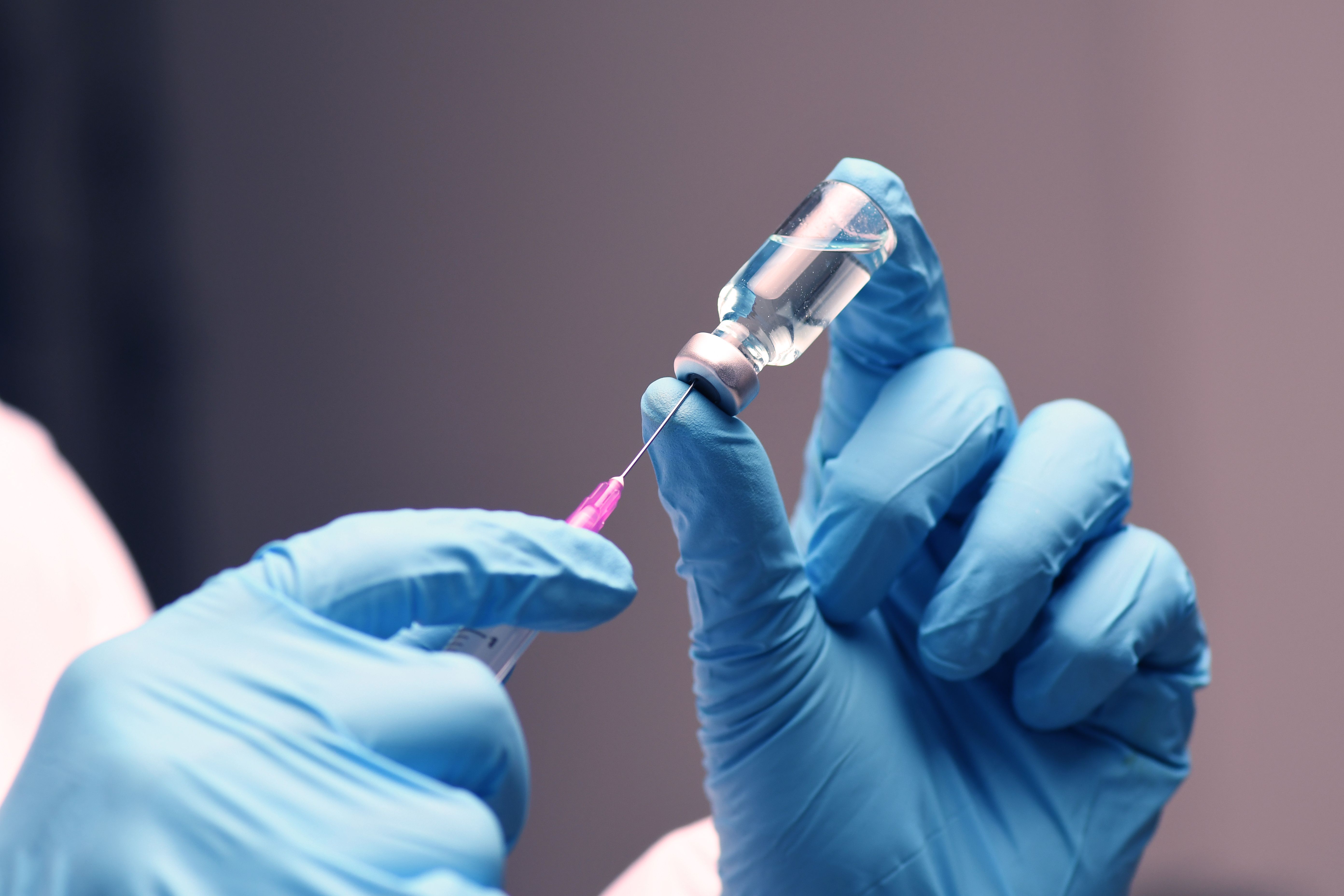News
Article
Pembrolizumab With Chemotherapy Before Surgery Significantly Improves Response Rate in Patients With Breast Cancer
Author(s):
Pembrolizumab (Keytruda; Merck) plus chemotherapy administered prior to surgery demonstrated a statistically significant improvement in pathological complete response (pCR) rates in patients with high-risk, early-stage estrogen receptor-positive, human epidermal growth factor receptor 2-negative (ER+/HER2-) breast cancer, according to results from the phase 3 KEYNOTE-756 (NCT03725059) trial. The randomized, double-blind trial, which compared the pembrolizumab combination as adjuvant treatment vs placebo for patients ER+/HER2- breast cancer, met 1 of its dual primary endpoints of pCR.
Image credit: Tan | stock.adobe.com

Pembrolizumab is an anti-programmed death receptor-1 (PD-1) therapy that increases the immune system’s ability to detect and fight cancer cells. Further, pembrolizumab, a humanized monoclonal antibody, has been found to prohibit the interaction between PD-1 and its ligands, PD-L1 and PD-L2, activating T lymphocytes that can affect both healthy cells and tumor cells.
In combination with chemotherapy, 100 mg pembrolizumab injections are indicated for the treatment of high-risk, early-stage triple-negative breast cancer (TNBC) and locally recurrent unresectable or metastatic TNBC whose tumors express PD-L1 (CPS ≥10); however, it is also indicated for other types of cancers (eg, unresectable or metastatic melanoma, non-small cell lung cancer, gastric cancer, esophageal cancer).
“With high rates of recurrence, patients with [ER+/HER2-] breast cancer are in need of new treatment options,” said Fatima Cardoso, MD, director of the Breast Unit of the Champalimaud Clinical Centre, Lisbon, Portugal, and co-principal investigator, in a press release. “…we are encouraged by data from KEYNOTE-756 in which the pembrolizumab-based regimen demonstrated a statistically significant improvement in pathological complete response rate compared to chemotherapy.”
Patients in the treatment cohort received 200 mg of pembrolizumab every 3 weeks (Q3W) plus chemotherapy (paclitaxel) weekly for 4 cycles, followed by 4 additional cycles of pembrolizumab with chemotherapy (doxorubicin or epirubicin plus cyclophosphamide) as neoadjuvant therapy prior to surgery, followed by 9 cycles of pembrolizumab Q3W plus up to 10 years of endocrine therapy as adjuvant therapy. The placebo cohort received placebo Q3W plus chemotherapy weekly (paclitaxel) for 4 cycles, followed by 4 additional cycles of placebo in combination with chemotherapy (doxorubicin or epirubicin plus cyclophosphamide) as neoadjuvant therapy prior to surgery, followed by 9 cycles of placebo Q3W plus up to 10 years of endocrine therapy as adjuvant therapy post-surgery. The dual primary endpoints were pCR rate (ypT0/Tis ypN0) and event-free survival, and the secondary endpoint was overall survival. KEYNOTE-756 results were consistent for secondary pCR definitions (ypT0 ypN0 and ypT0/Tis), and no new safety signals were identified.
“The goal of neoadjuvant therapy is to reduce the size of the tumor prior to surgery,” said Dr. Aditya Bardia, MD, attending physician, medical oncology, Massachusetts General Hospital, director, breast cancer research, Massachusetts General Cancer Center, associate professor, Harvard Medical School and global co-principal investigator. “In KEYNOTE-756, 24.3% of patients treated with neoadjuvant pembrolizumab plus chemotherapy achieved a pathological complete response, a meaningful endpoint demonstrating there was no cancer in tissue samples analyzed and obtained at the time of definitive surgery following completion of neoadjuvant therapy for these patients.”
Potential adverse events (AE)s of pembrolizumab include immune-mediated pneumonitis, colitis, hepatotoxicity and hepatits, endocrinopathies (eg, thyroid disorders, hypophysitis, type 1 diabetes mellitus), and dermatologic complications. Among treated patients, 52.5% of those who received pembrolizumab plus chemotherapy and 46.4% of those who received chemotherapy alone experienced grade 3 through 5 AEs. Further, treatment-related AEs in the neoadjuvant part of the trial that led to discontinuation of any drug occurred in 19.1% of patients treated with pembrolizumab plus chemotherapy, and only 10.1% in those who received chemotherapy alone.
“Results from KEYNOTE-756…demonstrate the progress we are making in earlier stages of certain cancers, including breast cancer,” said Gursel Aktan, PhD, vice president, global clinical development, Merck Research Laboratories, in the press release. “KEYNOTE-756 is the first positive phase 3 trial with an immunotherapy regimen to demonstrate a statistically significant improvement in pCR rate in the neoadjuvant setting for patients with [ER+/HER2-] breast cancer. These results support the potential of a KEYTRUDA-based regimen for more patients with difficult-to-treat types of early-stage breast cancer.”
Reference
Merck. Merck’s KEYTRUDA® (pembrolizumab) Plus Chemotherapy Showed Statistically Significant Improvement in Pathological Complete Response (pCR) Rate as Neoadjuvant Therapy Versus Chemotherapy in High-Risk, Early-Stage ER+/HER2- Breast Cancer. News release. October 20, 2023. Accessed October 20, 2023. https://www.merck.com/news/mercks-keytruda-pembrolizumab-plus-chemotherapy-showed-statistically-significant-improvement-in-pathological-complete-response-pcr-rate-as-neoadjuvant-therapy-versus-chemotherapy-in/
Newsletter
Stay informed on drug updates, treatment guidelines, and pharmacy practice trends—subscribe to Pharmacy Times for weekly clinical insights.





